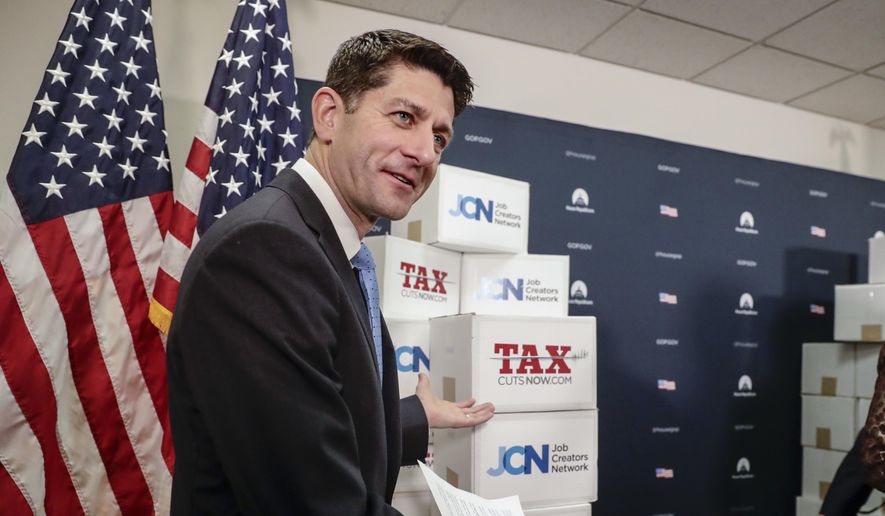The 235-191 vote to approve the rules for floor debate was a small but critical procedural step, ahead of an expected floor vote on the bill itself on Thursday.
“This is a bold, pro-growth bill that will overhaul our tax code and unleash the free enterprise system,” Rep. Pete Sessions said on the House floor Wednesday.
“It will help jobs and job creation — that is why we are here today,” said Mr. Sessions, Texas Republican and chairman of the House Rules Committee.
Democrats, meanwhile, have cast the plan as a giveaway to big corporations and the wealthy, and objected to what they described as a rushed process.
Rep. Lloyd Doggett, Texas Democrat, called it a “sham of a tax bill.”
“Why should a tax bill that’s so broad get less time than it takes to microwave popcorn?” he said. “They want it through here before the American people know what hit them.”
The plan, which cleared the Ways and Means Committee last week on a party-line vote, slashes the corporate tax rate from 35 percent to 20 percent and sets a new 25 percent rate for certain small businesses that file their taxes as individuals.
It also lowers individual tax rates, nearly doubles the standard deduction, increases the child credit and adds in a new family credit as Republicans pitch it as a boon to the middle class.
The plan also preserves a local property-tax deduction of up to $10,000 while doing away with deductions for other state and local income taxes — a compromise aimed at winning over blue-state Republicans who objected to the full repeal of the state and local tax break.
Congressional scorekeepers have said that on average, people of all income levels would get an immediate tax cut under the plan, though the tax burden would steadily increase over time on some people due in part to the expiration of provisions like the new family credit.
But Republicans have said they drew in such temporary items so they could comply with budget rules, saying they have to keep costs within the $1.5 trillion limit and that they expect future congresses to extend the breaks.
The Senate Finance Committee, meanwhile, was considering its own plan Wednesday, which is close to the House bill on cutting individual and corporate rates.
But unlike the House plan, it also includes a repeal of Obamacare’s individual mandate and sunsets its individual tax cut provisions after 2025 to comply with budget rules. It also completely axes the state and local tax deduction.
Under the fast-track rules in the 2018 budget passed this year, Republicans can approve their tax package with a simple majority in the House and Senate, bypassing a potential filibuster.
But in addition to the $1.5-trillion price tag limit, congressional budget rules also say that the package can’t add to deficits in the long run if the reforms are to be made permanent.
• David Sherfinski can be reached at dsherfinski@washingtontimes.com.




Please read our comment policy before commenting.